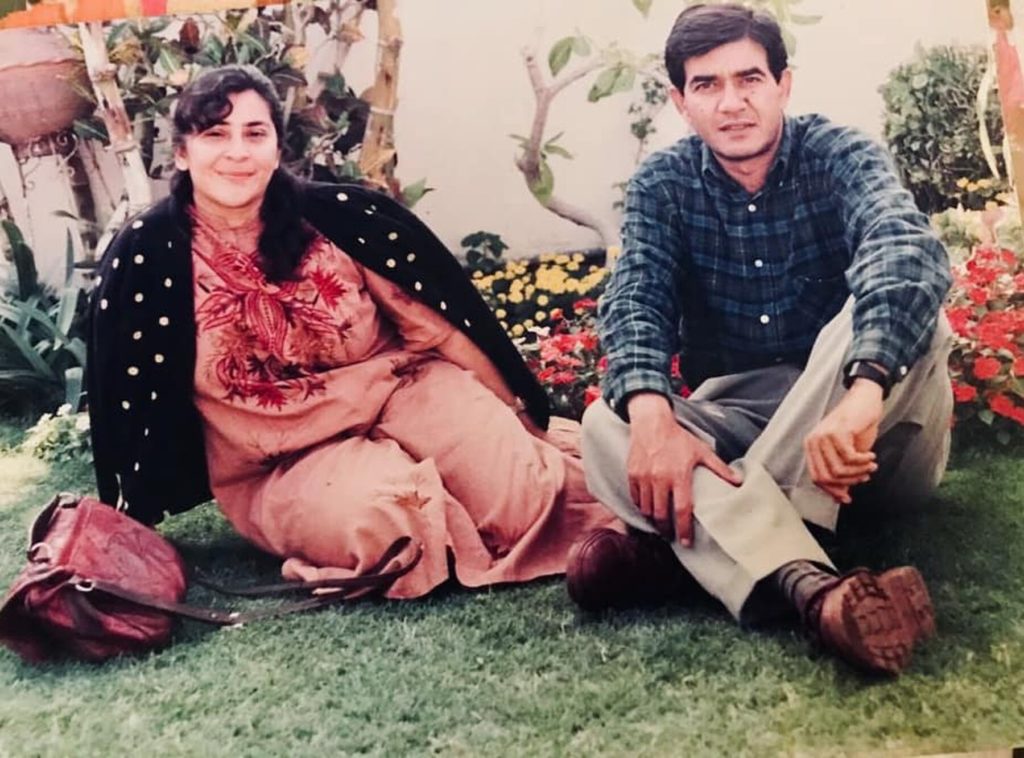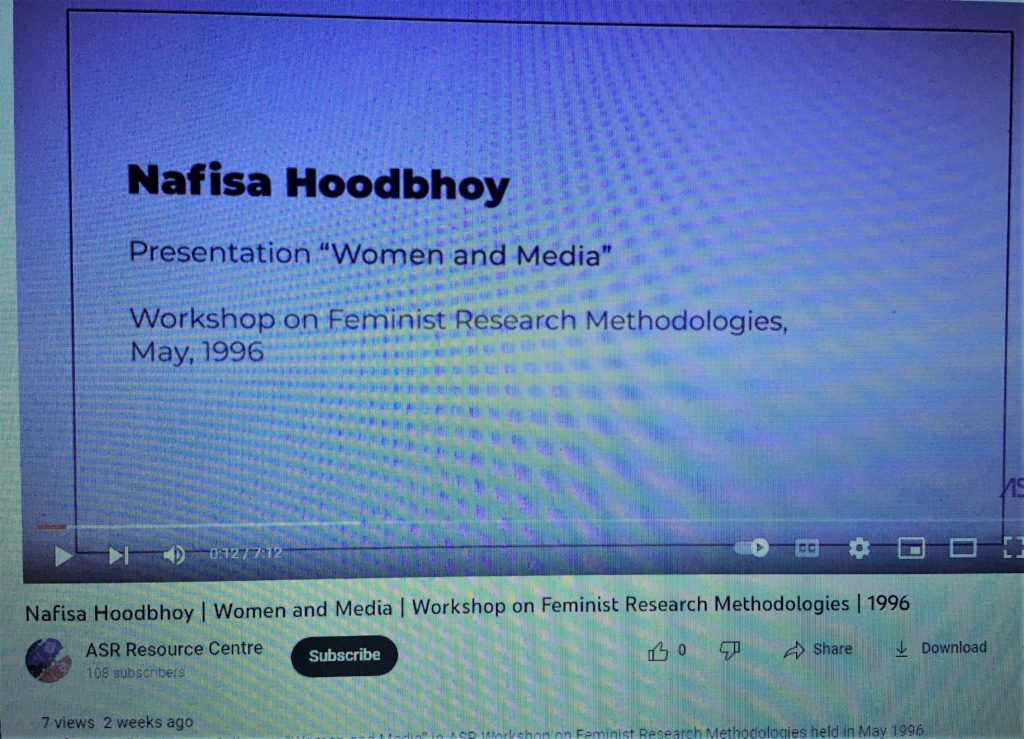
DC Government Shielded From Liability After Mental Patient Murders Neighbor

October 7, 2022 by Tom Ramstack
WASHINGTON — The D.C. Court of Appeals ruled late last month that the District of Columbia cannot be sued for the murder of a man at the hands of a mental patient who was under supervised release.
The man’s wife, Nafisa Hoodbhoy, claimed in her lawsuit that Washington, D.C., authorities were negligent for failing to recognize the assailant’s murderous tendencies and acting to stop him.
The Court of Appeals said the D.C. government has immunity from liability under a 2016 law that created the “public duty doctrine.” The law says the district fulfills its duties by protecting the public at large but has no legal obligation to protect any individual citizen.
Court of Appeals judges agreed the district was negligent in the murder of Pakistani philosopher Jawaid Bhutto but said the local government could not be forced to pay compensation to his widow.
Bhutto was shot to death by a neighbor who lived in his same Southeast D.C. condominium building. The neighbor, Hilman Jordan, was under court-authorized release from the city’s St. Elizabeths Hospital.
Jordan underwent psychiatric treatment at St. Elizabeths for 17 years after being found guilty by reason of insanity for killing his cousin. He was released from the hospital in 2015 under supervision of D.C.’s Department of Behavioral Health.
The court order of supervision required that Jordan be returned to St. Elizabeths if regular blood testing showed he was taking illicit drugs. Psychiatrists determined the drugs triggered Jordan’s paranoid and schizophrenic delusions.
Evidence presented in court showed that months before Bhutto’s killing, Jordan tested positive on four drug tests. Nevertheless, the Department of Behavioral Health did not return him to custody or inform the court.
Bhutto’s widow said the Department of Behavioral Health’s inaction demonstrated negligence. The agency also was negligent for failing to warn neighbors of Jordan’s violent tendencies and preventing his access to drugs, the lawsuit says.
Jordan shot Bhutto for complaining to the condominium’s management that cigarette and marijuana smoke from Jordan’s apartment was wafting upward into Bhutto’s residence.
Associate Judge Catharine Friend Easterly wrote in the court’s ruling that the district’s government failed to fulfill its court-ordered obligations regarding Jordan but the public duty doctrine shielded the city from liability.
She also wrote that the public duty doctrine was “analytically bankrupt.”
Tom can be reached at tom@thewellnews.com and @TomRamstack
FREEDOM PLAZA, WASHINGTON DC DEMONSTRATION DEMANDS DC ACCEPT RESPONSIBILITY FOR THE FATAL ATTACK ON JAWAID BHUTTO – JULY 3, 2022
People arrived in all forms of transport to Freedom Plaza, Washington DC on July 3, 2022 to demand that DC accept responsibility for the heinous attack on JAWAID BHUTTO on March 1, 2019 that claimed the life of the peace-loving philosopher and enlightened scholar outside his home in Anacostia.

Former President of the Sindhi Association of North America, Iqbal Tareen gave a speech that thundered several blocks away from the venue, which called on DC to stop making excuses that it was not responsible for the tragedy.
JB WATCHES WITH AMAZEMENT AT THE SPEECHES MADE FOR HIM IN WASHINGTON DC

https://www.facebook.com/100002547635429/videos/771463540531776/
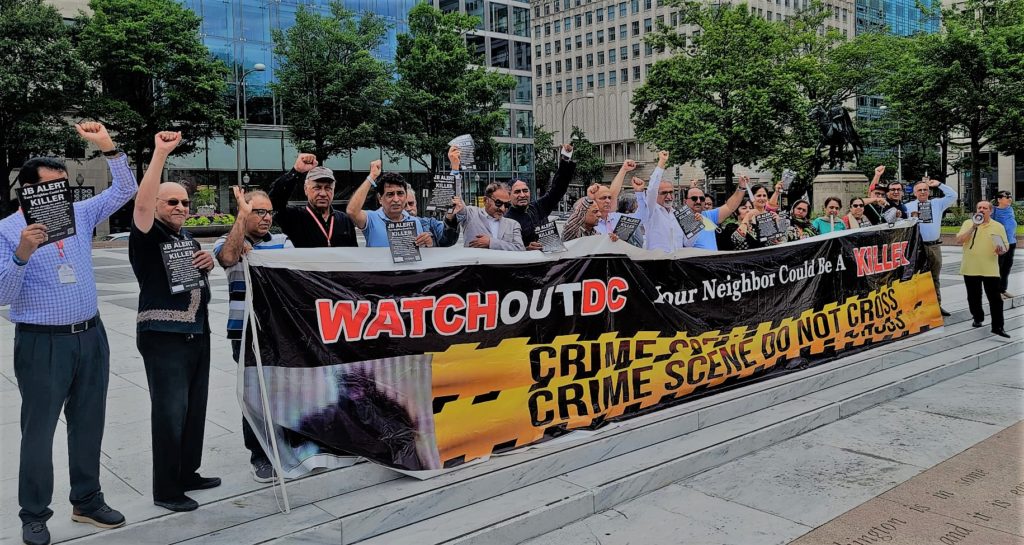
The Black Hole
Sindh Observes Jawaid Bhutto’s 3rd anniversary
Nafisa Hoodbhoy v District of Columbia 20-CV-0293
D.C. Court of Appeals Zoom Oral Arguments – December 08, 2021
DC Goes on Trial for their Failure to Protect Jawaid Bhutto
DC Admits Mistakes that Led to Fatal Attack on Bhutto
The Life & Love of Jawaid Bhutto
JAWAID BHUTTO IS WATCHING
REMEMBER THOSE EYES?
They are the eyes of a critical thinker lost in self reflection. This philosopher has left a pair of eyes that are looking out on his behalf. The eyes of his life partner will ensure that his assailant and everyone in the DC metropolitan area who stole his life is brought to trial and punished.

JAWAID BHUTTO’S ATTACKER SEEKS `PRIVACY’ TO PROTECT HIS MURDEROUS PAST
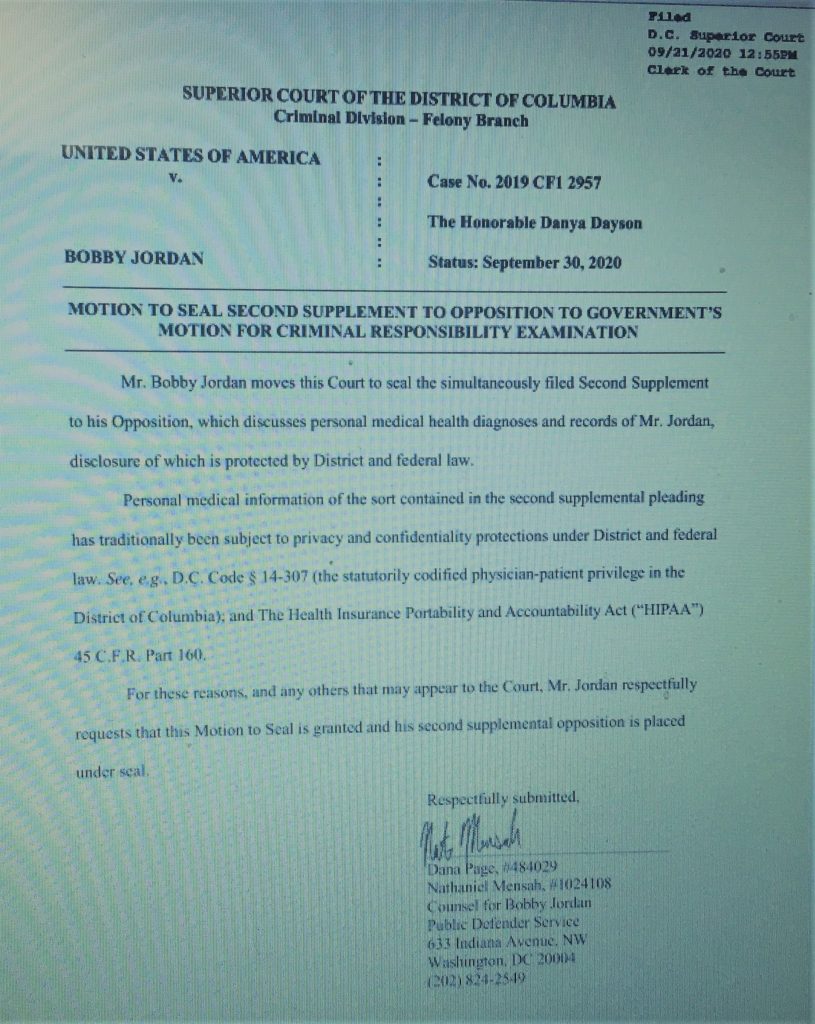
THE KILLER CAUGHT ON CCTV CAMERAS PACING THE GROUNDS, WAITING FOR BHUTTO TO COME HOME, NOW WANTS TO PLEAD INSANITY
The accused in Jawaid Bhutto’s case, Hilman Jordan, who killed his cousin two decades ago, and was seen on CCTV cameras pacing the grounds… waiting for Jawaid to finish his night shift and come home… seeks to plead insanity. It’s an old tactic that’s worked before. Some 22 years ago after Jordan killed his cousin and pleaded insanity, he was spared from prison.
On Sept 30, at 9:00 am, Judge Dana Dayson will hear his lawyers argue that Jordan’s mental health records be kept private. This “privacy” made it possible for Jordan, a schizophrenic killer, to live in a neighborhood where no one would know his demented criminal past.
Since the last hearing on August 25, the defense lawyers for the accused have tried to convince the judge not to allow Jordan to be examined by a psychiatrist. They also want to impose all types of conditions on the psychiatrist to freely evaluate his mental condition, including invoking the Fifth and Sixth amendment..
The defense goal in opposing the psychiatric evaluation of the criminal is an effort to “prove” that he acted in a fit of insanity when he attacked Jawaid Bhutto, as the latter returned home and began to unload groceries from the trunk of his car.
PUBLIC DEFENDER HAS WORKED HARD TO SAVE ACCUSED
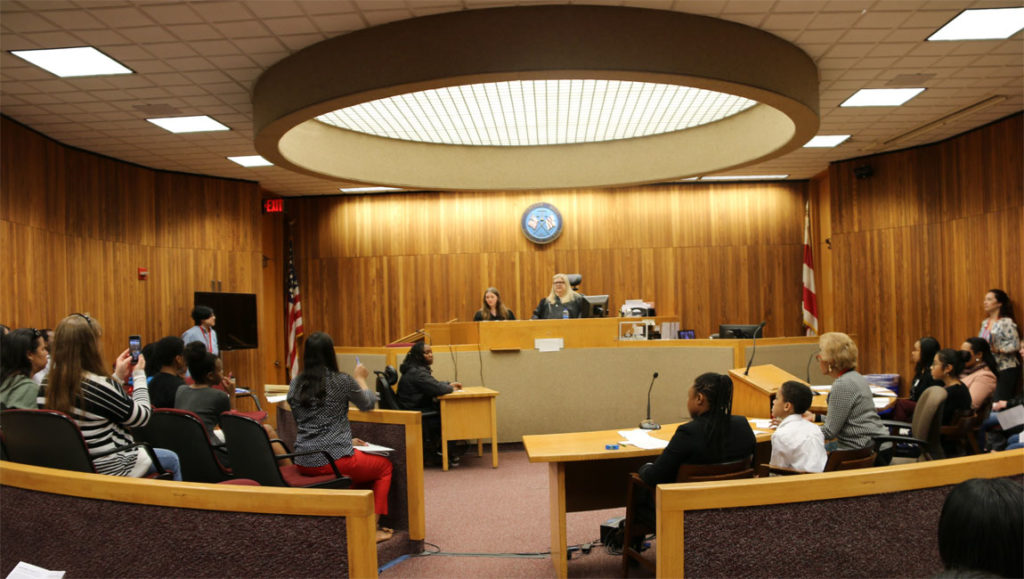
The Public Defender, Dana Page has worked hard to save the accused. During COVID, she tried to have her client sent to St. Elizabeth Psychiatric Hospital. Instead, he was hospitalized and has since recovered to face trial.
Currently, the defense has been on the attack by arguing that the government side has failed to provide them all the “discovery material” that could prove their argument beyond reasonable doubt. The prosecution has rejected their arguments.
HEARING WILL BE BEAMED LIVE ON WEBEX VIDEO

People who gathered to hear Jawaid Bhutto (below) may not hear directly from him. But they will hear the circumstances under which the gentle, humane Bhutto…. who was blossoming as a deep thinker and an inspiration for thousands of people… was suddenly and cruelly snatched away from our midst.
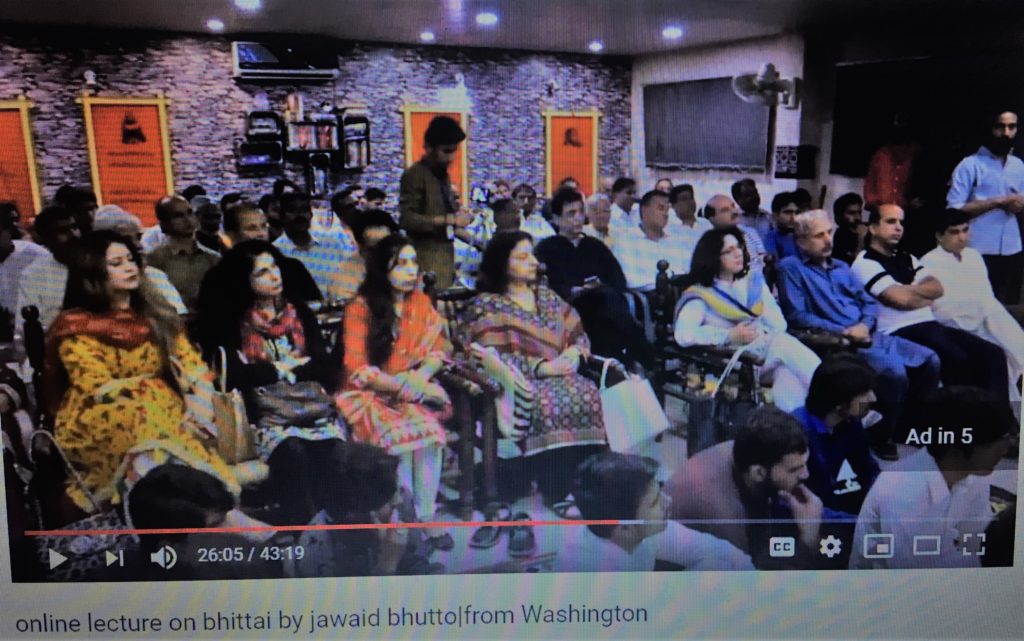
The audience above waits to hear from Jawaid Bhutto, speaking above on Skype from his bedroom in Washington DC.
On September 30, they will be able to see and hear the proceedings on Jawaid’s case relayed on Webex video from DC Superior Court.
WATCH THIS SPACE
Acting US Attorney Seeks Mental Examination of Jawaid Bhutto’s Assailant
Acting US Attorney Michael Sherwin has asked the DC Superior Court to order the mental examination of Jawaid Bhutto’s attacker – Hilman Jordan -“by one or more psychiatrist.”
Sherwin, who conducts prosecution of all federal crimes and serious local crimes moved the motion in Judge Dana Dayson’s court on July 6, for productivity and criminal responsibility exam of Jordan, who is accused of the murder.

However, the defendant for the accused, Dana Page opposed the motion. In her rejoinder on July 8, Page submitted that the prosecution had failed to provide materials relating to Jordan’s mental health at the time he attacked Jawaid.
According to the defense, they have been requesting materials from the prosecution that would support their contention that Jordan was suffering from a mental illness at the time he attacked Jawaid. Page submitted that is intended to bolster the defense argument that Jordan should be considered `Not Guilty By Reason of Insanity.’
In 1998, Jordan murdered his cousin and pleaded insanity – as a result of which he never went to prison. Subsequently, the District of Columbia sent him for treatment to St. Elizabeth Psychiatric Hospital – and then paid for his `convalescent leave’ to rent the condo below Jawaid Bhutto’s apartment.
Under DC law, it is legal to dump insane criminals – like Hilman Jordan – in communities without informing neighbors about their background, In the case of Jordan, DC has been forced to admit that it failed to monitor him for rampant drug abuse, including failing to sent him back to St. Elizabeth – in flagrant violation of court orders
Judge Dana Dayson will rule on the prosecution and defense arguments in the state’s criminal case against the accused.


